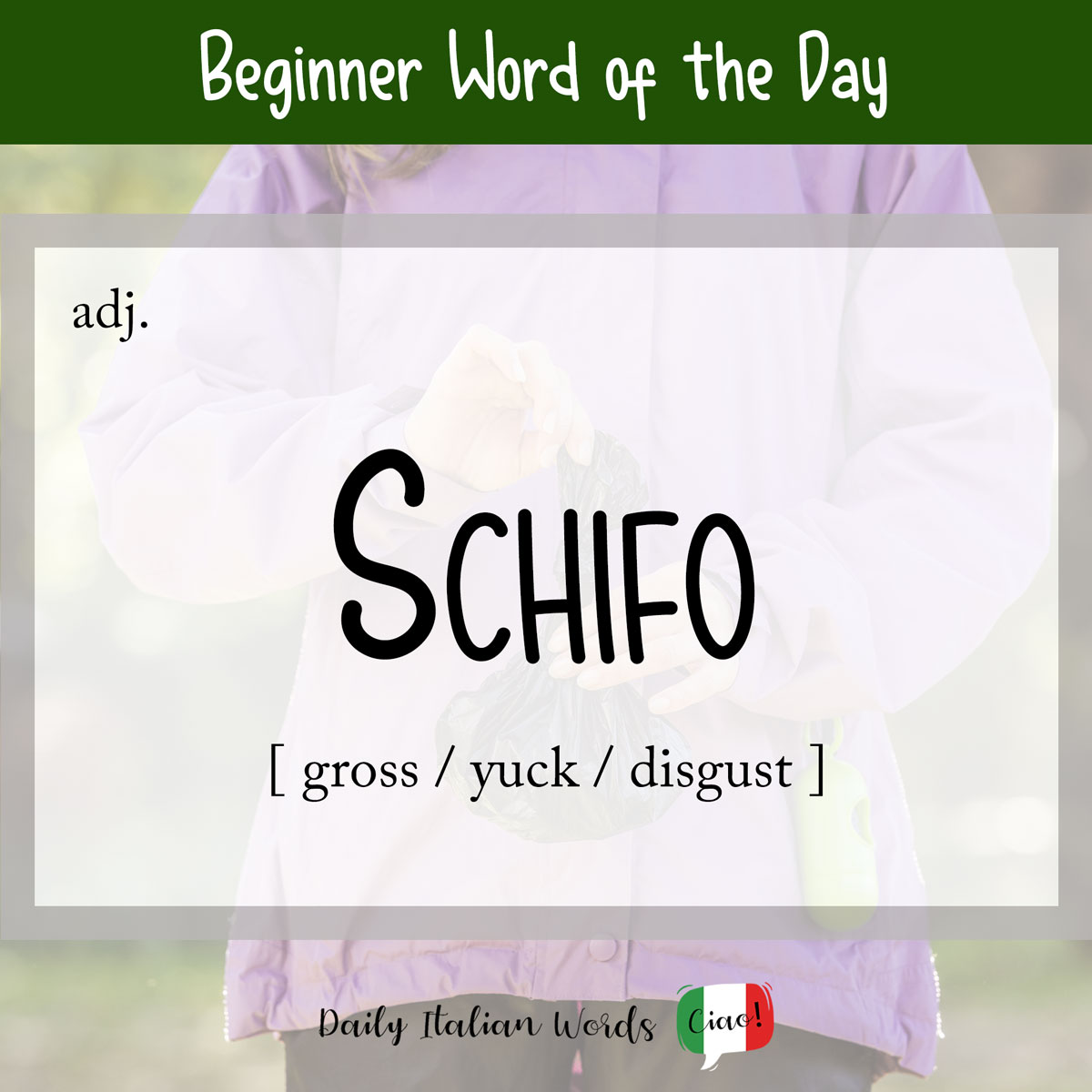Italian Word of the Day: Schifo (gross / yuck / disgust)
A soiled diaper. A smelly sock. Or a dead spider in your bathtub. All of these can be succinctly described with a single Italian noun: schifo (gross / yuck / disgust). schifo gross / yuck / disgust The term has roots in the Old French eschif and Old Franconian *skiuhjan, meaning to respect / revere …






